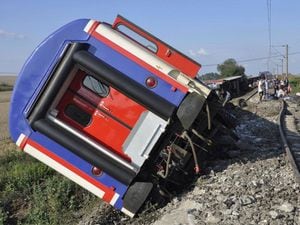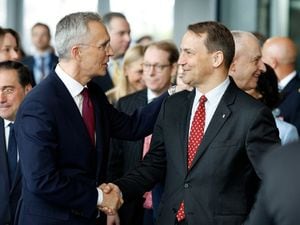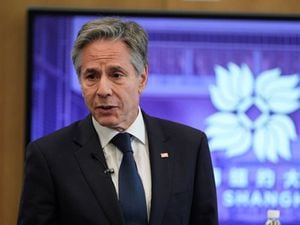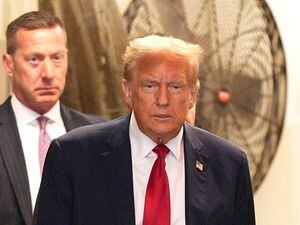China launches first three-man crew to new space station
It is China’s first crewed space venture in five years.
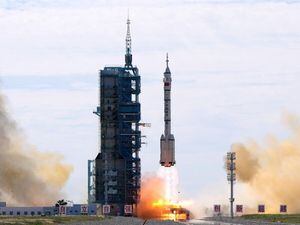
China launched the first three astronauts on a mission to its new space station on Thursday in its first crewed venture in five years.
The three men, already wearing their spacesuits, were seen off by the commander of China’s manned space programme, other uniformed military personnel and a crowd of children waving flowers and flags and singing patriotic songs.
The trio – Tang Hongbo, Liu Boming and Nie Haisheng – gave final waves to a crowd of people waving flags as they entered the lift to take them to the spaceship at the Jiuquan launch centre in north-western China.
The two veteran astronauts and a newcomer making his first space flight are heading to the Tianhe, or Heavenly Harmony, station for a three-month stay in its main living compartment, where they will carry out experiments, test equipment, conduct maintenance and prepare the station for receiving two additional modules next year.
The rocket dropped its boosters about two minutes into the flight followed by the coiling surrounding Shenzhou-12 at the top of the rocket. After about 10 minutes it separated from the rocket’s upper section and extended its solar panels.

The rocket used on Thursday was of a different type and the components that will re-enter were expected to burn up long before they could be a danger, said Ji Qiming, assistant director of the China Manned Space Agency.
The mission brings to 14 the number of Chinese astronauts travelling into space since China launched its first crewed mission in 2003, becoming only the third country after the former Soviet Union and the United States to do so on its own.

China is not a participant in the International Space Station (ISS), largely as a result of US objections to the Chinese programme’s secrecy and close military ties. However, China has been stepping up cooperation with Russia and a host of other countries, and its station may remain in space beyond the ISS, which is reaching the end of its functional life.
The mission builds on experience China gained from earlier operating two experimental space stations. It also landed a probe on Mars last month that carried a rover, the Zhurong, and earlier landed a probe and rover on the moon and brought back the first lunar samples by any country’s space programme since the 1970s.

